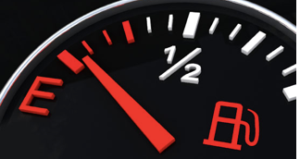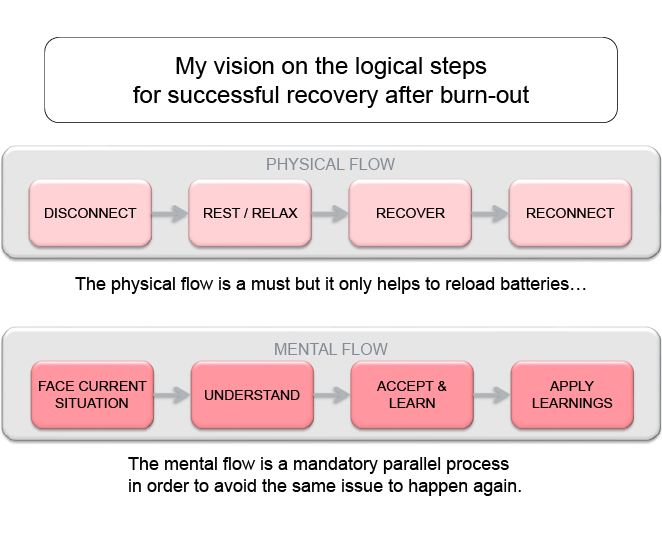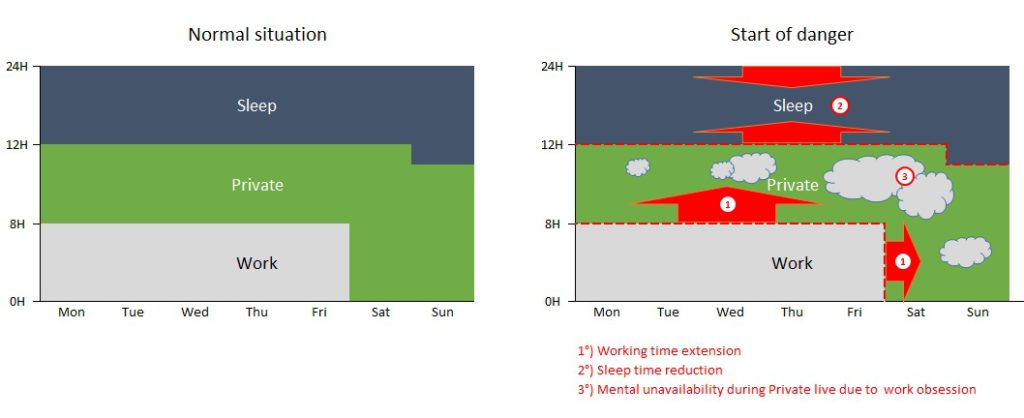You are here: Stress & Burn-out Coaching » Burn-out

The real experts (those who have experienced it) always refer to their passion and drive. This passion was so all important that they did not even feel fatigue. This passion is for instance evident in their strive for perfection: perfect job, perfect family, perfect hobbies,… This pattern of perfectionism is an important trigger for burn-out.

This is probably the best metaphor: the fuel tank is empty. Just like when you are driving your car and you see the fuel gauge, but you continue driving in the hope that….and then the car stalls. Refuelling is the only option. Except unlike with a car, it is not that easy.
Another metaphor is the on/off button. In most cars this button is now built-in. We also have this button, but we do not use it enough. And so, we go on, because ‘we have to, it is important’,…. And then we ‘stall’.
This is how a coachee described his ‘burn-out’ process:
4 core symptoms
3 additional symptoms
It goes without saying that only a doctor can diagnose the illness.

A coachee used a nice metaphor. A tree needs all its roots in order to stay healthy. The same goes for human beings. When a person uses only one root (job) and all the other roots are neglected (family, hobby, friends,…), sooner or later the tree will fall.
The moral of the story is: make sure you get your energy from all your roots so that you stay healthy.
Professor Elke Van Hoof (clinical psychologist) claims that just resilience (resisting) is not enough.
It is equally important to allow time to recover (to sleep, to walk, to do sports, to rest, to be idle,…)
Furthermore, also anticipation is important (proactive coping style): taking measures in order to balance the stress in our lives. For example: taking a 10-minute break so that you can participate in a meeting with a higher energy level.
A lot of information regarding burn-out is available on the internet, e.g. the 12 stages of burn-out: by the psychologist Freudenberg.
A coachee described the stages as follows:
Below is a nice visualisation of the process as experienced by the coachee:
Back to overview: Stress & Burn-out Coaching
We deliberately choose to organise the coaching sessions at our coaching facilities located in a peaceful and green environment, right next to the river Scheldt.
This creates inner peace and leads to deeper concentration and thus has more impact.
The coaching sessions take place
Before, after or during the coaching session the coachee can use our Ikigai Reflection Room, Wi-Fi and drinks included.
’Ikigai’ is a Japanese concept, meaning ‘Reason for being’ or ‘Purpose’.